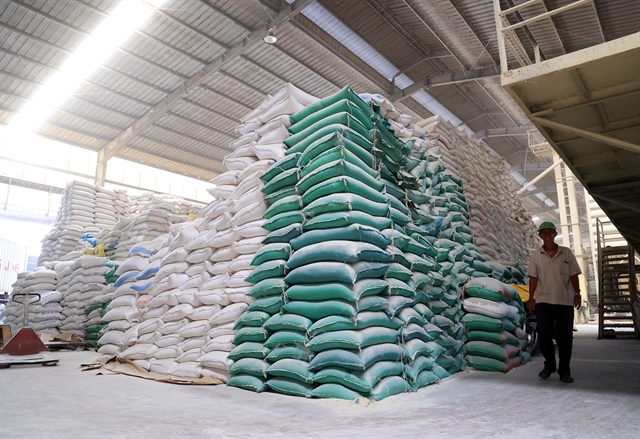The Vietnam Trade Office in Sweden has confirmed that Vietnamese rice is not among the batches temporarily seized by Swedish authorities for suspected quality fraud.

A rice warehouse of Dương Vũ Co in the southern province of Long An. — VNA/VNS Photo
The Vietnam Trade Office announced the Swedish Food Safety Authority, in collaboration with police, the Work Environment Authority and customs, conducted a large-scale investigation to inspect rice distributors on October 28.
Head of the Vietnam Trade Office in Sweden and the Nordic region Nguyễn Thị Hoàng Thúy, clarified that the substandard rice temporarily held by Swedish authorities is not the type of grain exported by Việt Nam.
Vietnamese exports to Sweden primarily consist of Jasmine and Japonica rice varieties. In contrast, the rice involved in this investigation is Basmati rice, mainly sourced from other markets outside Vietnam.
Over 600 tonnes of rice have been inspected, revealing numerous severe issues, including insect infestation, expired rice and falsified date labelling. In some cases, distributors were unable to provide the origin of the rice. Only five per cent of the inspected rice met the quality standards promised.
In total, 20 companies across six cities were inspected, with five companies banned from selling and 14 required to relabel their products. This Swedish initiative underscores the country’s strict product regulations.
Regarding Vietnamese rice exports, Thúy shared that during the first half of 2024, Sweden imported over US$2 million worth of rice from Việt Nam, marking a strong 94 per cent increase year-on-year.
Recently, the Vietnam Trade Office in Sweden has implemented numerous trade promotion strategies to introduce Vietnamese goods, particularly rice, to the Swedish market. Supported by tariff reductions under the EU-Vietnam Free Trade Agreement (EVFTA), Vietnamese rice is gaining popularity in Sweden.
To further solidify Vietnamese rice’s presence in the Nordic market, the Trade Office recommends that importing companies play a crucial role in ensuring quality and food safety standards.
For speciality rice suppliers, establishing solid partnerships is recommended, along with avoiding bulk sales.
“Consistency in quality is the key,” Thúy said, highlighting it as the most crucial factor for sales of Vietnamese rice to thrive in the Nordic market. — VNS
Read original article here